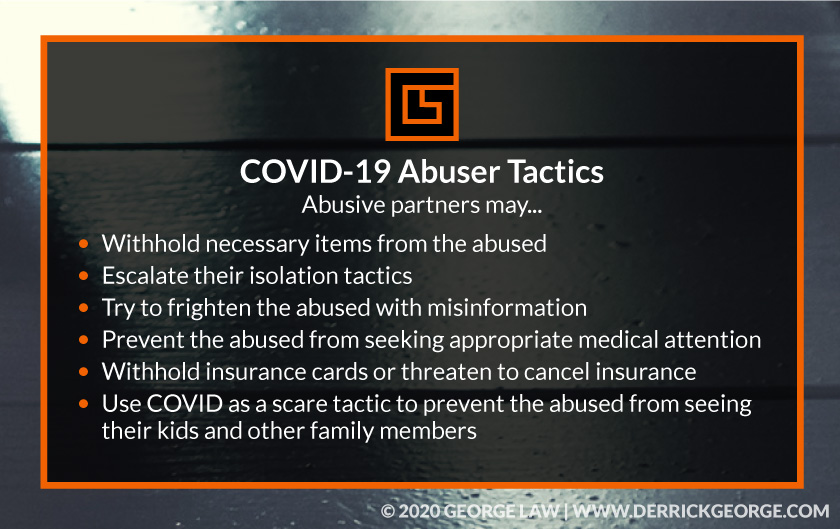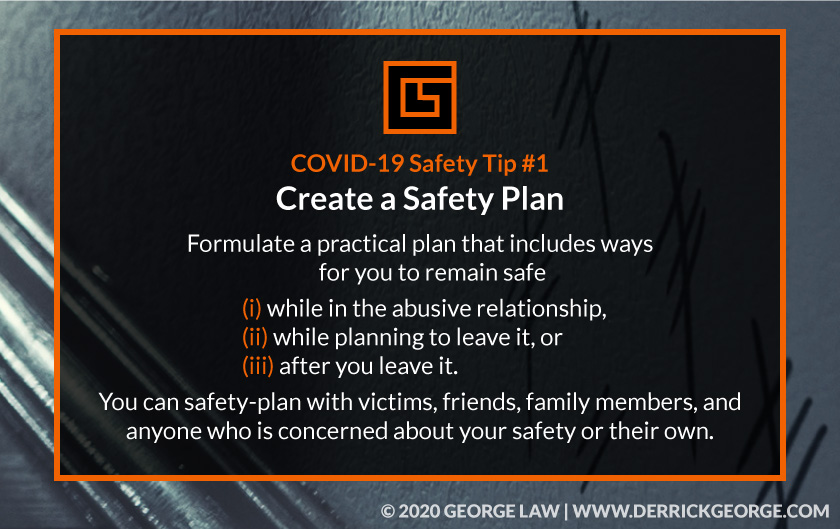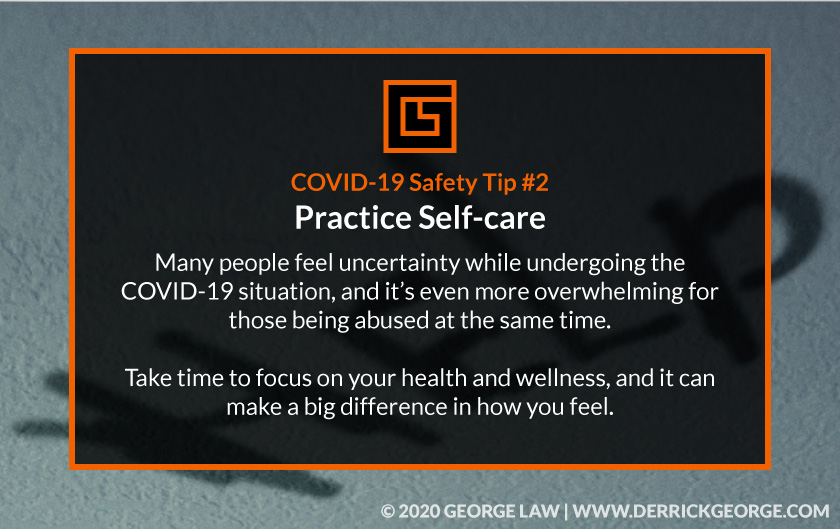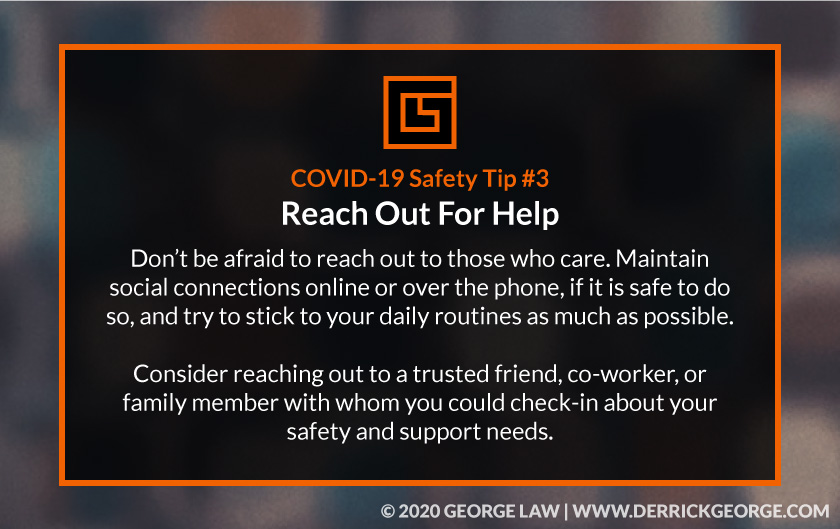For victims of abuse, the governor’s quarantine order to reduce the spread of COVID-19 puts them in a nightmare situation: they’ve been locked into a confined space with their biggest nightmare — their abuser.
The quarantine is a particularly stressful time for everybody, but it presents additional challenges for abused individuals. Their safety is further compromised by factors over which they have no control that add to the stress and financial strain. Unemployment is increasing, businesses are shutting their doors, employees are required to work from home, and the CDC is encouraging “social distancing.” These factors combine to create a cesspool of opportunity for the abuser to take advantage of an already stressful situation to gain more control. The abuser knows that the abused is now legally required to stay at home with them, and they will use any tool at their disposal to exert control over them.
Indeed, abusers could adopt extreme versions of tactics they already use. For example,
- Abusive partners may withhold necessary items from the abused, such as hand sanitizer and disinfectants.
- Abusive partners may feel government-sanctioned and escalate their isolation tactics.
- Abusive partners may share with the abused misinformation about the pandemic to control or frighten them, or to prevent them from seeking appropriate medical attention if they have symptoms.
- Abusive partners may withhold insurance cards, threaten to cancel insurance, or prevent the abused from seeking needed medical attention.
- Abusive partners may use COVID as a scare tactic to prevent the abused from seeing their kids and other family members.

The most dangerous place in the world for the abused can be their own home, and being isolated during the pandemic is dangerous for those in abusive relationships. Domestic-violence victims feel even more isolated from their friends, family, and support networks. Perpetrators of abuse can use the pandemic as an opportunity to exert more control over their victims’ whereabouts and relationships. This particularly true for victims with disabilities, undocumented migrants, and victims of trafficking.
Those who endure violence in their relationships often have specific needs with respect to safety, health, and confidentiality. Adding children, elderly, and sick family members to the equation makes the situation downright scary. All hearts should go out to the abused, and we all need to find a way to help them during this COVID-19 pandemic.
Unfortunately, COVID 19 has also negatively impacted programs that serve survivors of abuse. Survivors who are older or have chronic heart or lung conditions are at increased risk in public places where they would typically get support, such as shelters, counseling centers, and court. Moreover, shelters may be full or may stop accepting new residents, or the abused may fear entering shelter because of being in close quarters with groups of people.
George Law is providing this information to the public service because it cares. Call it at (248) 470-4300. It has and knows people who have experienced this sort of situation.
Steps You Can Take
But it’s not hopeless, and there are steps you or someone you love can take if this is happening. Here are a few suggestions for the abused that may make this uncertain time feel a little bit safer.

- Create a safety plan.
Formulate a practical plan that includes ways for you to remain safe (i) while in the abusive relationship, (ii) while planning to leave it, or (iii) after you leave it. You can safety-plan with victims, friends, family members, and anyone who is concerned about your safety or their own.
Because the ongoing COVID-19 crisis may limit the availability of shelters, consider staying with friends or family, staying in motels, or sleeping in your vehicle. Be certain to follow good hygiene practices if you’re leaving your home – wash your hands regularly, avoid touching your face, minimize contact with surfaces with which other people have had contact, etc.

- Practice self-care.
Many people feel uncertainty while undergoing the COVID-19 situation, and it’s even more overwhelming for those being abused at the same time. Take time to focus on your health and wellness, and it can make a big difference in how you feel.
If you’re a friend or family member of someone you think is being abused, you may not be able to make in-person visits. Remind yourself that you can’t make decisions for them, but you can encourage them to think about their well-being and their safety plan, and to practice self-care while they are in their home.

- Reach out for help.
Domestic-violence victims trapped at home with their abusers and afraid to leave amid the coronavirus crisis are in more peril than ever — while at the same time, courts in Michigan have reduced their hours and the number of protection orders that they process. This comes at a dangerous time for battered victims forced into close quarters with their abusive partners. For many victims, staying home may be more dangerous than the coronavirus itself — and experts foresee added stress possibly leading to explosive and deadly episodes of violence.
Don’t be afraid to reach out to those who care. Maintain social connections online or over the phone, if it is safe to do so, and try to stick to your daily routines as much as possible. Consider reaching out to a trusted friend, co-worker, or family member with whom you could check-in about your safety and support needs.
7 Domestic Violence Organizations to Contact
Remember that you are not alone and supports remain available to you. We have compiled resources and tools, all of which work tirelessly to help you in ways that are safe and supportive:
- National Health Resource Center on Domestic Violence at health@futureswithouviolence.org, with the subject line “COVID19 Resource”.
- The National Domestic Violence Hotline is 24/7, confidential and free:1-800-799-7233 and through their on-line chat.
- The National Sexual Assault Hotline is 24/7, confidential and free: 1-800-656-HOPE (4673) and through their on-line chat.
- The StrongHearts Native Helpline for domestic/sexual violence is available 7am-10pm CT. It is confidential and specifically for Native communities:1−844-762-8483.
- The Trans LifeLine for peer support for trans folks 9am-3am CT:1-877-565-8860. This hotline is staffed exclusively by trans operators, and it seems to be the only crisis line with a policy against non-consensual active rescue.
- The Deaf Hotline is available 24/7 through video phone (1-855-812-1001), email and online chat for Deaf, DeafBlind, DeafDisabled survivors.
- National Parent Helpline M-F, 12pm-9am CT. IT provides emotional support and advocacy for parents:1-855-2736.
George Law is providing this information to the public service because it cares. Call it at (248) 470-4300. It has and knows people who have experienced this sort of situation.

 Menu
Menu